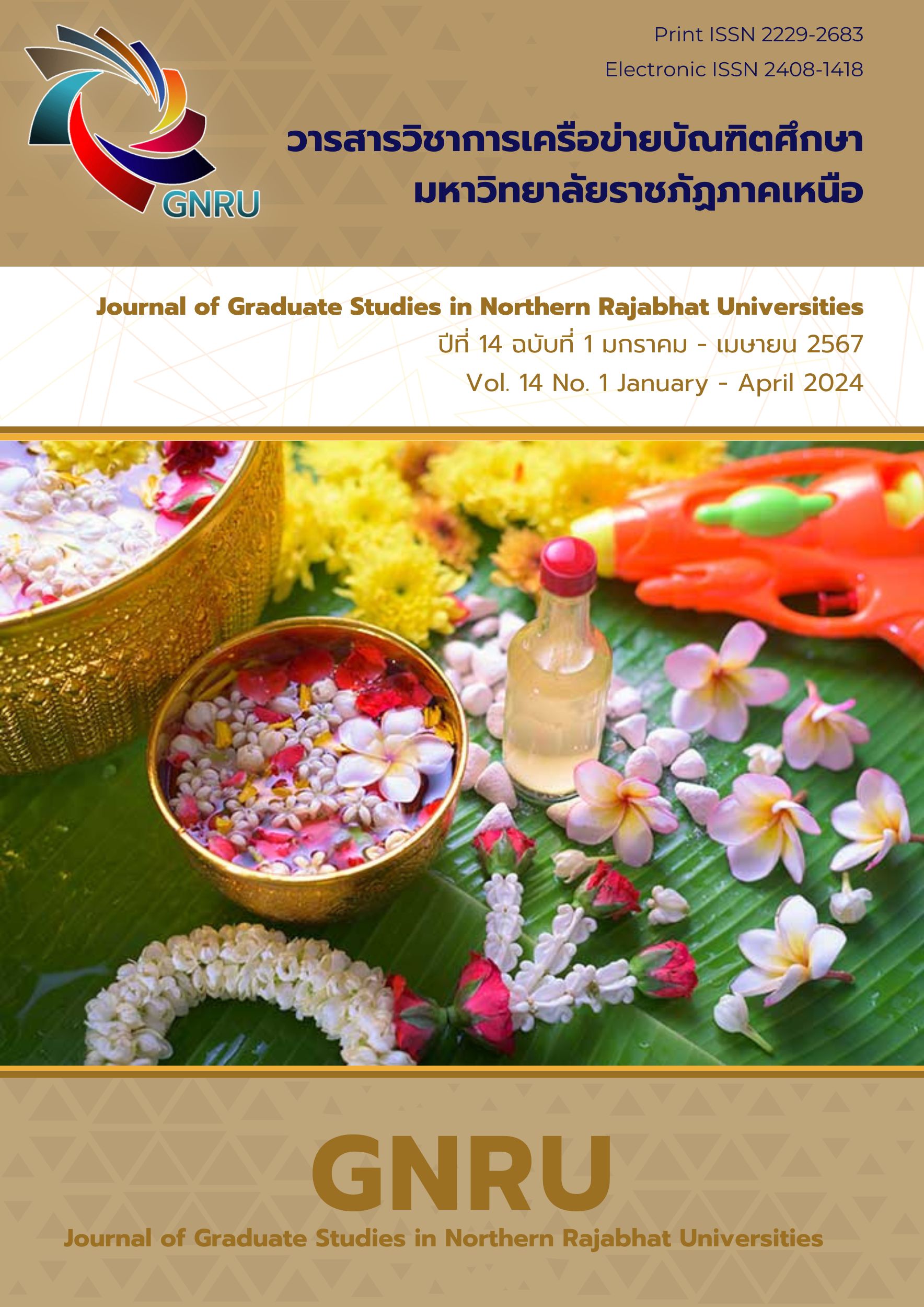8 THA SAP OLD TOWN : SCENARIO PLANNING ANALYSIS AND MECHANISMS FOR DRIVING THE LEARNING CITY THROUGH CULTURAL CAPITAL
Main Article Content
Abstract
The research objectives were: 1) to study cultural capital, 2) to analyze the scenario, and 3) to study the mechanisms for driving the learning city. The selected area was Tha Sap Old City, Mueang District, Yala Province. The Key Informant consisted of community leaders, community groups, youth groups, representatives of government officials, and representatives of private-sector officials, a total of 37 persons. The research tools included interviews, survey guidelines, and data collection methods included in-depth interviews, creating a community action plan through the activity “Tha Sap, Building Oneself on Cultural Capital.” Data were analyzed by content analysis and explanation of phenomena that occurred through descriptive analysis.
The research results revealed three issues. First, cultural capital is in the embedded forms, objects, and institutionalized systems form of embedded, material, and institutional aspects in the form of a system of values, beliefs, customs, traditions, and relationships among people in the community that can be built upon. Second, receiving information and being proactive about both long-term impacts on the community and the strategic choice of Tha Sap can raise the level of urban development. Third, a social learning city takes into account the conservation and careful use of its cultural capital through joint learning using research-based development techniques, appropriate management of community enterprise groups managed by groups of all ages, designing media programs through action plans, and coordinating in driving the dissemination through information systems about community stories.
Article Details
References
Bernstein, B. (1974). class, codes and control, Volume I, Theoretical Studies towards a Sociology of Language, Routledge, PP. 58–63.
Boonwanno, T. (2020). social time and temporalities. Illuminations Editions. Bangkok.
Bourdieu, P. (1984). Distinction: A Social Critique of the Judgement of Taste. London: Routledge.
Bourdieu, P. (1986). “The Forms of Capital.” In Handbook of Theory and Research for the Sociology of Education, edited by John G. Richardson, 241-258. New York: Greenwood.
Brill, M. (1989). Transformation, Nostalgia, and Illusion in Public Life and Public Place. In Altman, I. and Zube, E. pp. 7-29. Public Places and Spaces, New York and London: Plenum Press.
Kaewthep, K. (2017). Community cultural work tools and ritual study media. 2nd printing, Bangkok. Sirindhorn Anthropology Center (Public Organization).
Lefebvre, H. (1991). The production of space. Oxford: Blackwell.
Office of the National Economic and Social Development Council Office of the Prime Minister (2023). National Economic and Social Development Plan No. 13 (2023-2027). National Legislative Assembly. 2023. Royal Gazette. Retrieved on 10 October 2023 from https://www.nesdc.go.th/download/Plan13/Doc/Plan13_Final.pdf.
Osborne, M., et al. (2013). Learning cities: Developing inclusive, prosperous and sustainable urban communities. International Review of Education, 59(4), 409-423.
Parker, J. (2019). Learning cities: experiences, reflection and opportunities. France: World Committee for Lifelong Learning.
Paterson, M. (2006). Consumption and Everyday Life. London: Routledge.
Pradit, A., et al. (2023). Civil society: community learning resources to create a learning city mechanism. J-D Journal: Environmental Design Academic Journal, 10(1), 26-47.
Robinson, J.B., (1988). Loaded Questions: New Approaches to Utility Forecasting , Energy Policy, 16(1), 58-68.
Sevaguru, N., & Safa, M. (2009). Scenario planning approach to strategic management of small travel business in Malaysia. International Journal of Business and Management Science, 2(1), 61-77.
Thornton, S. (1995). Club Cultures: Music, Media and Subcultural Capital. Cambridge: Polity/Wesleyan University Press.
United Nations. (2017). The Global Goals for Sustainable Development. Available http:// www.un.or.th. 9 Feb 2019.


